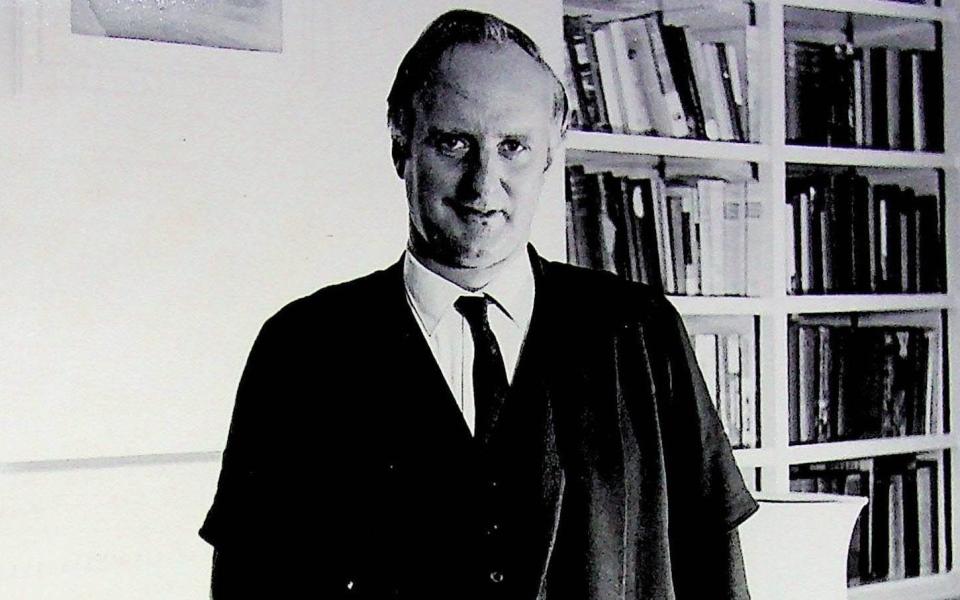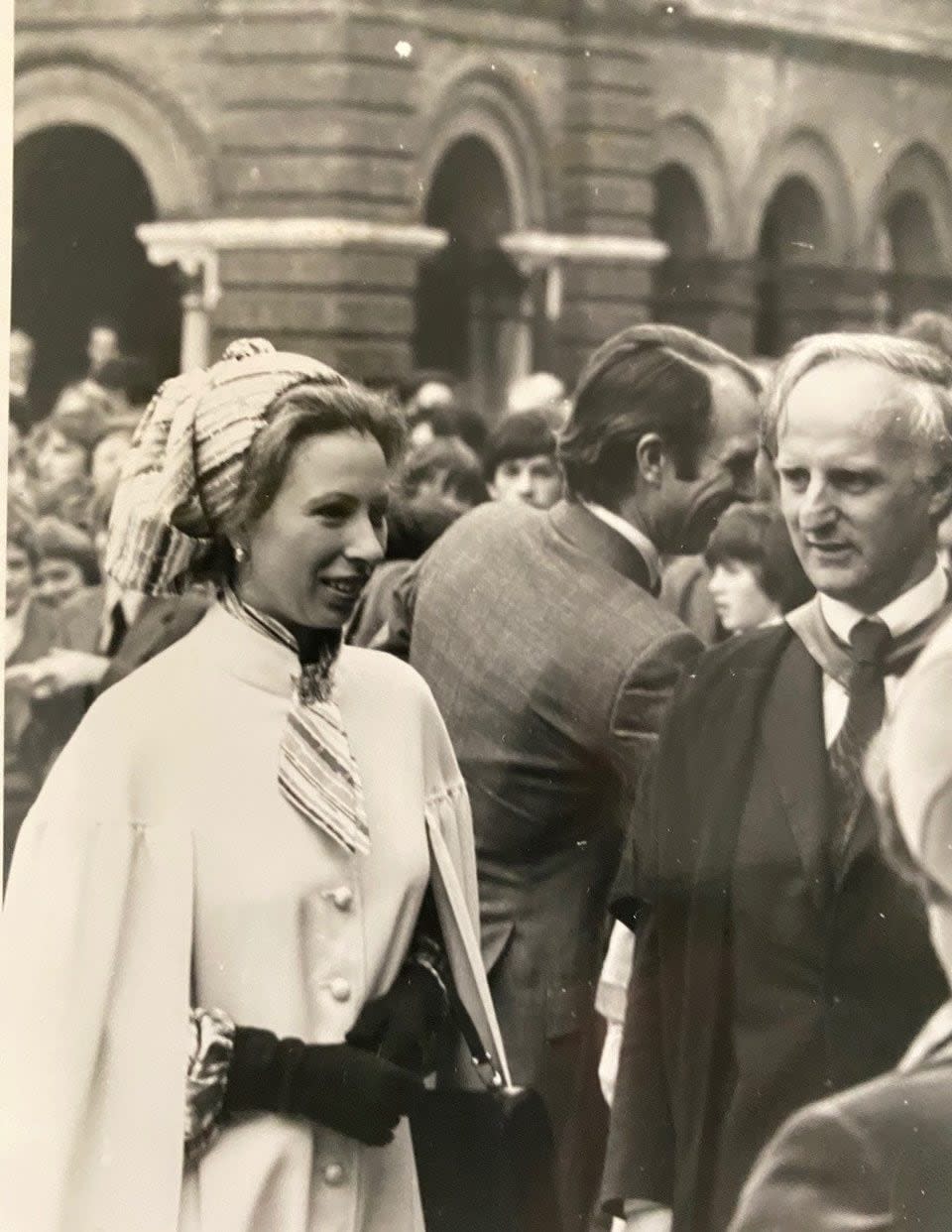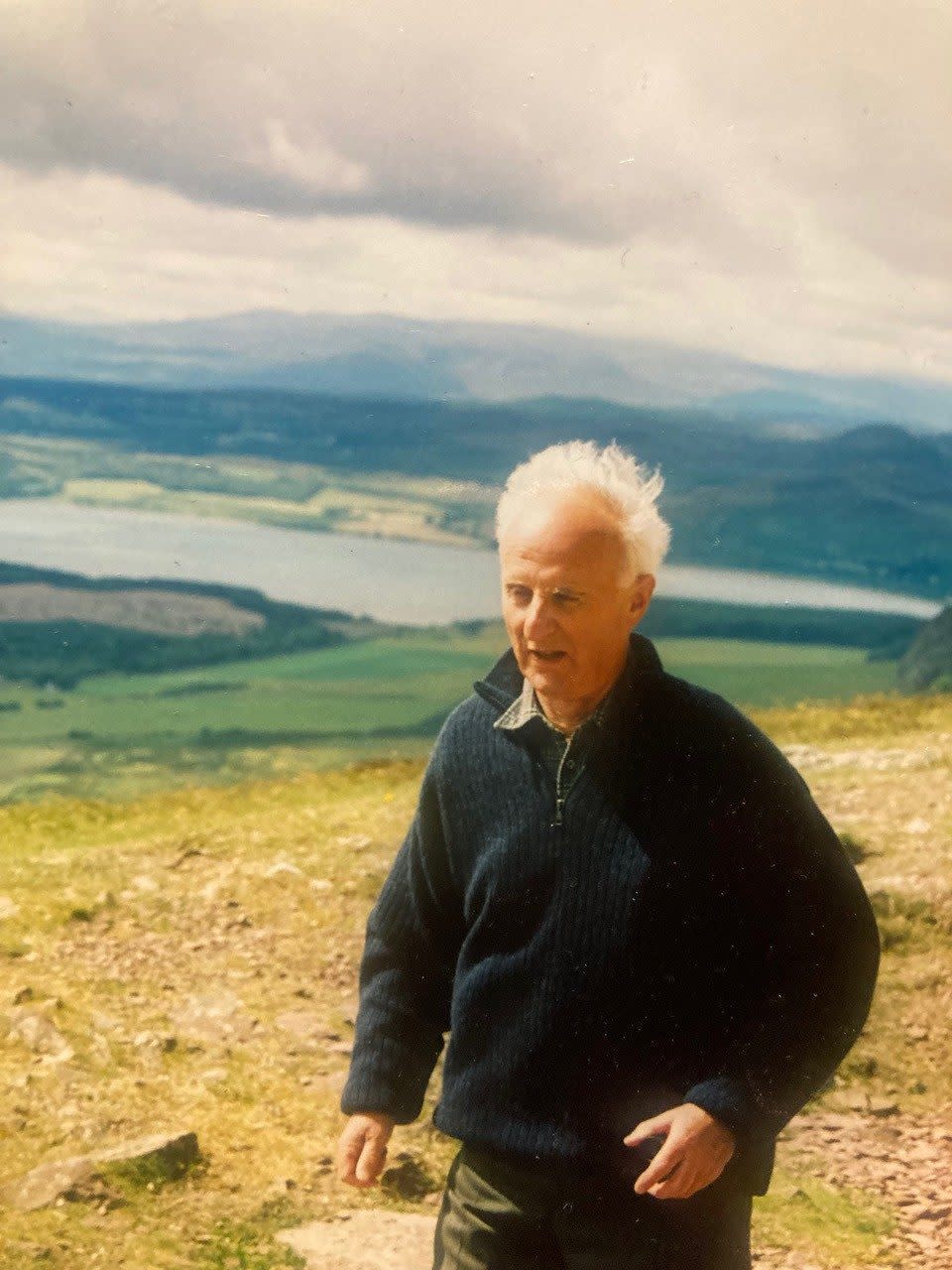Roger Ellis, humane Master of Marlborough College who set a course for admitting girls all the way through – obituary

Roger Ellis, who has died aged 93, was Master of Marlborough College from 1972 to 1986, overseeing a period of relative calm after the many liberalising changes of the 1960s.
Ellis successfully built on the reforms of his charismatic predecessor, John Dancy, a fellow Wykehamist who had transformed Marlborough’s academic reputation and made it, in 1968, Britain’s first traditional boys’ public school to take girls in the sixth form.
While very much in favour of this development, Ellis felt that the experiment was incomplete, that the sixth-form arrangement compounded the top-heaviness of the school numbers, and that only by admitting girls all the way through could this be corrected.
So in addition to quadrupling the number of girls at the school – extra accommodation was provided by former maids’ quarters in the attics of the boarding houses – Ellis laid the groundwork for full co-education. To his frustration, the money was not available during his time for the boarding houses needed; but it began three years after he left, Ellis having paved the way for his successor.
Meanwhile, before Wellington, Charterhouse and others followed Marlborough’s example, there was enormous demand for girls’ sixth-form places. The number of boys had fallen, however, Dancy’s innovations having given the school a reputation which discouraged many conservative parents and prep-school headmasters. The more orthodox Ellis did much to reassure prep schools of Marlborough’s merits, inviting small groups of masters to dinner parties, and he gradually increased the school’s size to about 900.

He also oversaw a significant improvement in the A-level pass rate (from 84 per cent in 1972 to 92 per cent in 1984) and upgraded rundown buildings and facilities, including a rolling programme of dividing the huge Victorian dormitories into study bedrooms.
Dancy had bequeathed a strong Common Room, which Ellis continued to enhance and which he considered had an academic liveliness unequalled except perhaps at Winchester.
Recognising the importance of art in the school curriculum under the outstanding art master Robin Child, Ellis added a high-ceilinged upper floor to the art department, symbolically prominent in the school’s central Court and providing enough space for a third of the sixth form to take art as an A-level. Although these were mostly taken as a fourth subject, Marlborough’s art results were extraordinary, far better than any other school in the country.
Keen to foster a broad range of interests beyond the academic, Ellis was proud of the fact that at Marlborough there were house plays, school plays, and form plays; the Circe feminist society performed their own rather pointed skits. Everyone should be able have a go and learn, he believed. Clubs, choirs and orchestras abounded and the school’s Ellis Theatre is named after him.
Marlborough had always been a challenging place to run because of its long-standing liberal tradition and its large number of boarding houses distributed over a large campus. Modest by nature, with an innate sympathy towards offenders, Ellis preferred to persuade than to compel, and spoke more in sorrow than in anger if he had to reprove his charges from the Memorial Hall stage.

Some sniped that he let discipline slip out of strict control, that he was too liberal about late-night hours, dangerous policies in a partly co-educational school. But Ellis countered that such criticisms reflected “the natural hostility towards Marlborough of the headmistresses, who sedulously spread rumours that all the girls in the College were advised to be on the Pill, which was the opposite of the truth”.
If Ellis’s judgment appeared at times to be strenuously acquired, it was firmly applied once his mind was made up, resulting in many changes that left his mark at Marlborough for years to come. It was impossible to find anyone, member of staff, pupil or parent, who did not like and trust him.
Roger Wykeham Ellis was born in London on October 3 1929, the son of a solicitor whose father had founded the firm Ellis Peirs, which handled Lord Northcliffe’s private affairs.
A prosperous and happy childhood was interrupted by the war, his father’s cancer, and the death of one of his mother’s two naval brothers, Ted Unwin, who was second-in-command of the cruiser Dunedin when it was torpedoed and sunk in the Atlantic.
Ellis’s headmaster at St Peter’s, Seaford, broke the news of his father’s death to him. The kindness and camaraderie he encountered both there and subsequently at Winchester, combined with singing in school choirs, playing games, and a relish of good history teaching, were formative and fortifying.
At Winchester, Ellis was considered bright enough to move quickly up the school, spending half of his time there in the equivalent of the sixth form and ending up as head of house. But the living was brutal. Each winter morning, the ice was cracked on the bath by the first boy before, one by one, the dormitory dipped into the freezing water, the last one scraping off the accumulated adolescent grease at the end.
After leaving school, Ellis did his National Service in the Navy and soon found himself on the lower deck of an aircraft carrier, a transforming, broadening 18 months of working with people from a wide cross-section of society.

He then went up to Trinity College, Oxford, to read History on an open scholarship, lodging for five terms in the Tower Rooms, with a Grinling Gibbons fireplace but no wash-basin nearer than two quads away. Acting, as well as music and golf, was an important part of Oxford life, although he was nearly killed when an ambitious but amateur stage manager let a piece of scaffolding fall a foot from his head.
After finals, Ellis went to teach sixth-form history at Harrow, remaining there for 15 years. He proved an inspiring teacher, his acting ability plus the timed phase of a chorister helping deliver an image or idea that lodged in the mind.
The eccentric head of history, Charles Lillingston, was often absent helping his friend Barbara Cartland with the historic background of her novels. Departmental meetings might be conducted from his bed and he delegated most of the administrative work to Ellis.
In 1961 Ellis became housemaster of the Head Master’s House, and was remembered for going around the house talking to the boys, open-minded, interested and humorous. In 1964 he married Margaret Stevenson, the daughter of a Harrow housemaster and well able to deal with this particular community. She eventually ran the selection and oversaw pastoral care of girls at Marlborough and they operated as a side-by-side team.
Appointed headmaster of Rossall School in Lancashire in 1967, Ellis successfully built up the numbers there partly by introducing day pupils, before being recruited to become Master of Marlborough.
Ellis was chairman of the Headmaster’s Conference in 1983 and was appointed CBE in 1985. He left Marlborough the following year to become head of graduate recruitment at Barclays Bank, while serving as a governor at Campion School in Athens, Cheam, Fettes, St Edward’s in Oxford, and Harrow.
A sense of Ellis’s teaching skills and story-telling can be seen in the books he wrote in retirement, Who’s Who in Victorian Britain (1997) and Britain’s Prime Ministers (2005), the latter written with his friend and former Harrow colleague, Geoffrey Treasure.
His form of choral worship continued at the Temple Church in London. In his eighties he had an uncanny knack of holing 30-foot putts on the back nine of the golf course, to the surprise of younger opponents, and in his last year he travelled to India, where his son Alex is the British High Commissioner.
He is survived by his wife, son and two daughters, Katherine and Hattie.
Roger Ellis, born October 3 1929, died February 14 2023

 Yahoo News
Yahoo News 